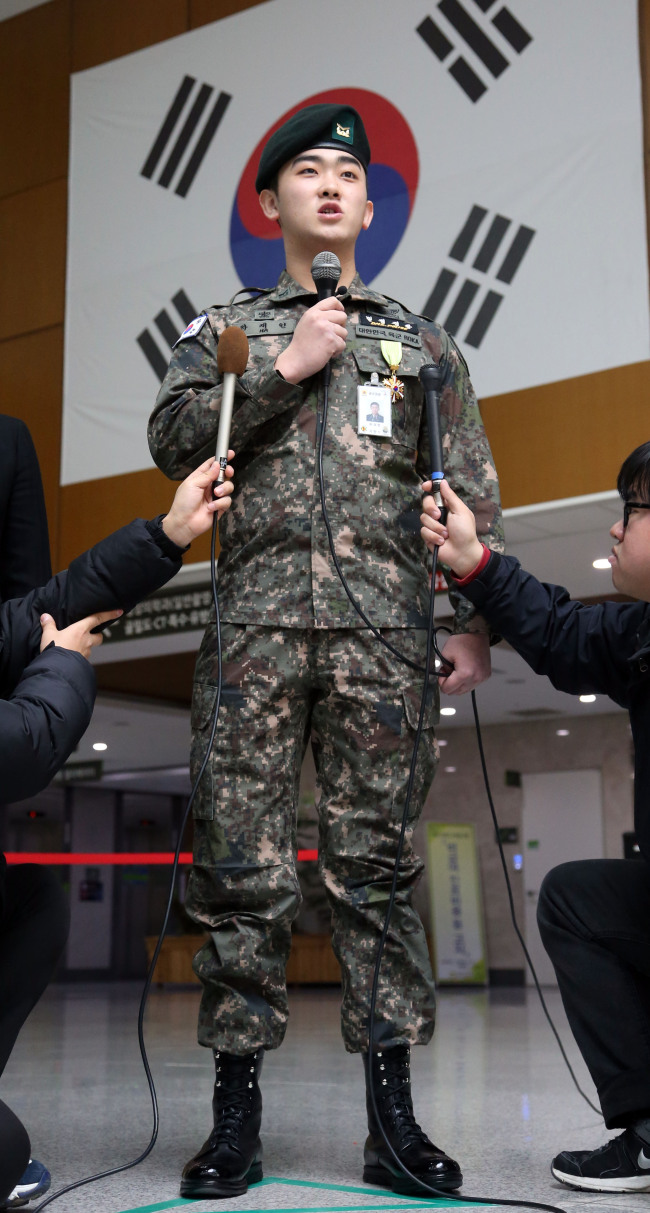 |
| Staff Sgt. Hah Jae-hun. Yonhap |
An Army staff sergeant who lost both legs in the North Korean landmine attack in early August was discharged from the hospital Tuesday after five months of treatment and rehabilitation that has enabled him to use prosthetic limbs.
Twenty-one-year-old Staff Sgt. Hah Jae-hun was conducting a patrol mission on the South Korean side of the Demilitarized Zone when landmines buried by North Korea exploded and maimed him and another soldier on Aug. 4.
The landmine attack, followed by North Korean artillery firing on the South, escalated military tensions between the countries in August before they reached the so-called “Aug. 25” agreement to ease tensions and facilitate talks.
Hah has since undergone surgery and intensive rehabilitation treatments to recover his ability to walk.
“I extend my sincere gratitude to the military and medical staff for providing the best treatment and the foundation for a new life,” Hah said as he was discharged from the state-run VHS Medical Center, standing on his two artificial legs.
“Even though I lost my legs, I will do my best to serve the country as a reborn soldier,” he said.
For now, Hah is able to take short walks indoors or go up and down stairs, but he will undergo a final round of treatment at an Army hospital before returning to service, according to the Army.
The other injured soldier, Staff Sgt. Kim Jung-won, who had one leg amputated, completed his rehabilitation and returned to his unit in early December with a prosthetic leg.
An Army representative said, “Hah’s case needed a more customized treatment system and more efforts on his part because, compared to Kim, it was more difficult for Hah to balance himself on two prosthetic legs.”
A task force of medical staff from the rehabilitation, orthopedics, urology, psychiatry and dermatology departments have worked together to treat and help Hah return to his normal life, the Army also said.
The VHS Medical Center said it will continue to help Hah carry out everyday activities and military service normally by providing more customized assistance devices down the road. (Yonhap)

